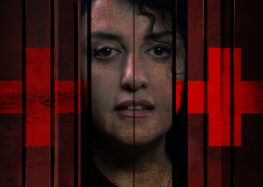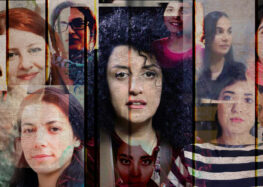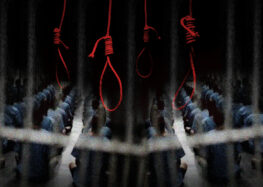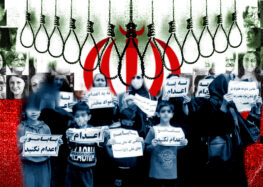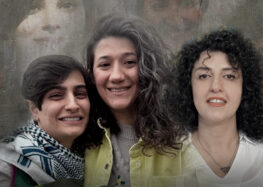Political Prisoner Narges Mohammadi Has Been Separated from Her Children for Five Years and Counting
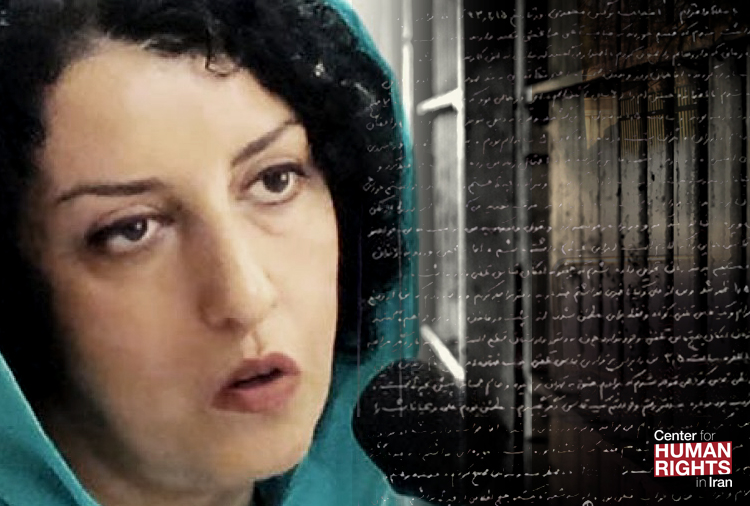
Imprisoned human rights advocate Narges Mohammadi has not been able to hold her two children since 2015, for nearly five years, her mother Ozra Bazargan wrote in an open letter decrying the injustice her daughter is being forced to endure.
“This is the fifth autumn we are spending without my daughter by our side,” said Bazargan’s letter published by the Defenders of Human Rights Center on October 7, 2019, and translated by the Center for Human Rights in Iran (CHRI).
“Her children Kiana and Ali have not seen their mother for more than four years. They ask me, ‘Is mom feeling well? Why doesn’t she call us anymore?’” Bazargan added.
The 12-year-old twins, who live in France with their father Taghi Rahmani, a political activist in exile, have not been receiving phone calls from their mother because of a ban imposed on her by Iranian authorities.
Political prisoners in Iran are frequently denied telephone privileges that prisoners in other wards are provided. Visits—even between inmates and their young children—are restricted or denied, and these prisoners are routinely refused furlough, the temporary leave afforded to most inmates in Iran.
“Family contact” is considered a prisoner’s right—not a privilege—by the United Nations.
Rule 23 of the UN’s Rules for the Treatment of Women Prisoners and Non-Custodial Measures for Women Offenders (known as the Bangkok Rules), states: Disciplinary sanctions for women prisoners shall not include a prohibition of family contact, especially with children. Rule 26 also stipulates that “Women prisoners’ contact with their families, including their children…shall be encouraged and facilitated by all reasonable means.”
For engaging in peaceful activism, Mohammadi has been serving a 16-year prison sentence since 2015 for the charges of “membership in the [now banned] Defenders of Human Rights Center,” “assembly and collusion against national security,” and one year for “propaganda against the state.” She will be eligible for release after serving 10 years.
“During her long incarceration, Narges has only been granted furlough for three days and undergone three serious operations and returned to prison without any recuperation in the hospital,” Bazargan wrote in her letter.
While furlough is regularly afforded to most prisoners in Iran, it is routinely denied to political prisoners, including mothers of young children, as additional punishment.
“For a long time, she was denied permission to see doctors [outside prison] and doesn’t even have access to her medication,” Bazargan added. “Despite having toothaches for close to three months, she hasn’t been transferred for treatment.”
Political prisoners in Iran, including elderly inmates, are singled out for harsh treatment, which often includes denial of medical care. The threat of withheld medical care has also been used as an intimidation tool against prisoners who have challenged the authorities or filed complaints.
Bazargan wrote: “My daughter has been deprived of things for years. During my own childhood, teen years and youth, I, too, experienced fear and witnessed the torture, flogging and imprisonment of my loved ones. But what compelled me to express my pain in this letter is my inability to give an answer to Kiana and Ali when they ask about their heartbroken mother.”
Bazargan continued: “What religion, which ideology or belief approves denying a mother hearing the voices of her children whom she longs to see?… This kind of treatment of a woman behind bars is so heartless, malicious and vindictive that words fail to do justice.”
“Our years of suffering and the reign of rulers will some day come to an end and history will bear witness,” she added. “But as a mother, and woman who has suffered in this land, I must say that these kinds of pains will not heal easily.”
Learn more about the denial of prisoners’ rights in Evin Prison in CHRI’s report, “Inside the Women’s Ward: Mistreatment of Women Political Prisoners at Iran’s Evin Prison.”
Read this article in Persian.


